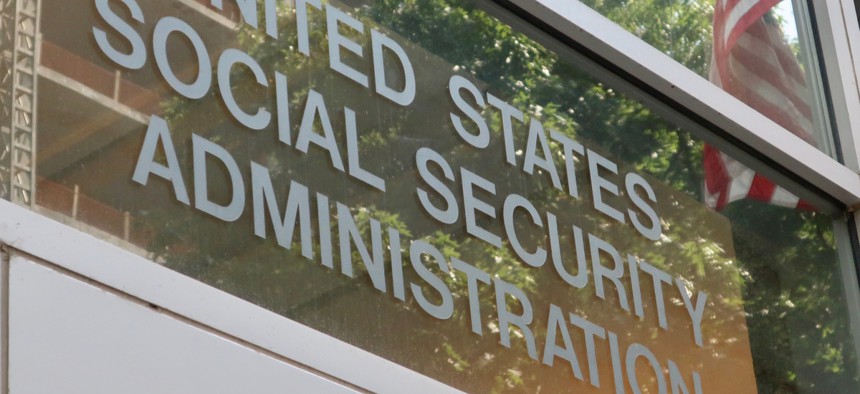Social Security Announces More Telework Cuts

Jer123/Shutterstock.com
The move comes after Congress directed the agency to reinstate telework in other offices within SSA.
The Social Security Administration on Monday informed employees of its various subcomponents that it will move forward with new cuts to telework policies, a move quickly decried by union officials who said they were left out of the notification process.
Shortly after noon, the agency sent vague statements to the press and union officials announcing that it would make telework changes to “improve service,” effective March 2. Last fall, the Federal Service Impasses Panel imposed a contract giving management broad leeway to change the terms of telework programs as the agency sees fit.
“The agency is notifying our unions and employees today, January 27, about changes in the telework program,” wrote agency spokesman Mark Hinkle. “The agency is making changes to telework because public service comes first. Each deputy commissioner was responsible for determining what employee positions are eligible to telework and the number of permitted telework days.”
Hinkle declined to provide additional information about the cuts to Government Executive.
“We are communicating the specifics directly with our employees and our unions,” he said. “Union representatives are invited to these discussions. Telework eligibility and frequency may vary depending on organizational deliverables as we work to improve service. This applies in components across the agency.”
Rich Couture, who serves both as a spokesman for the American Federation of Government Employees’ general committee representing Social Security employees and president of AFGE Council 215, which represents workers at the agency’s hearings and appeals offices, said management similarly rejected his own efforts to learn about the changes, and that he spent much of his afternoon in meetings and working with fellow union representatives to cobble together a list of the reforms across the agency.
“I’ve got to tell you, the depth of disrespect and disregard for AFGE with the rollout of this announcement, where the press found out before the union and the union found out at the last minute through a bare-bones notice . . . this basically illustrates to me that there’s no relationship anymore between SSA and AFGE,” Couture said. “There was no advance notice to the local reps that these meetings were to be held, and we have a statutory right to advance notice. This is part of a consistent trend along those lines that this was entirely deliberate.”
According to reports from various union officials, the telework cuts vary by agency subcomponent. In the most drastic instance, legal assistants who do pre- and post-hearing case development work for administrative law judges will only be able to work remotely one day per two-week pay period, down from the current policy allowing employees to telework up to three days per week.
Workers in the Office of Quality Review, which has had telework for nearly 20 years, will all see their existing telework agreements slashed by one day per week. And although there is no policy change for attorneys who do decision-writing for administrative law judges in the Office of Hearings and Appeals, each employee with an existing telework agreement must file paperwork to apply for a new one by February 7 or lose the ability to work remotely altogether.
“Our practice has always been that you only need to put in an application if you’re coming onto telework for the first time or want to change your schedule,” Couture said. “If you’re on telework and have an established agreement, that continues in perpetuity, because even when the policy changes, you’re continuing to agree to the terms and conditions therein. This will cause significant angst for decision-writers, because we could be in a situation, based on how it works out, where people will effectively lose days of telework because of scheduling and employees who had been on schedules based on their needs and when appointments were established and ongoing, and now they might not get the days they originally had.”
Couture said upon finally learning of the planned cuts to telework, he demanded to hear the agency’s rationale.
“When I got to question what rationale would prompt such a draconian cut [to telework for the legal assistants], their response was, ‘This is consistent with current needs and provides necessary flexibility to address workloads,’ ” Couture said. “I pointed out that you currently have the flexibility under the contract to suspend telework on an as-needed basis when business needs arise, for non-portable work, mandatory training and things of that sort, so what does this get you that you don’t already have? And the response I got was the same line, ‘We believe this change is consistent with current needs.’”
Social Security’s actions appear to defy the spirit of a congressional mandate enacted last month as part of the fiscal 2020 appropriations bills, which instructed the agency to come up with a plan to restore telework to employees in its operations divisions within 60 days. Last fall, shortly after the ratification of the contract with AFGE, the agency ended telework for roughly 12,000 employees.
Couture said Monday's announcements did not include any update on that plan.






